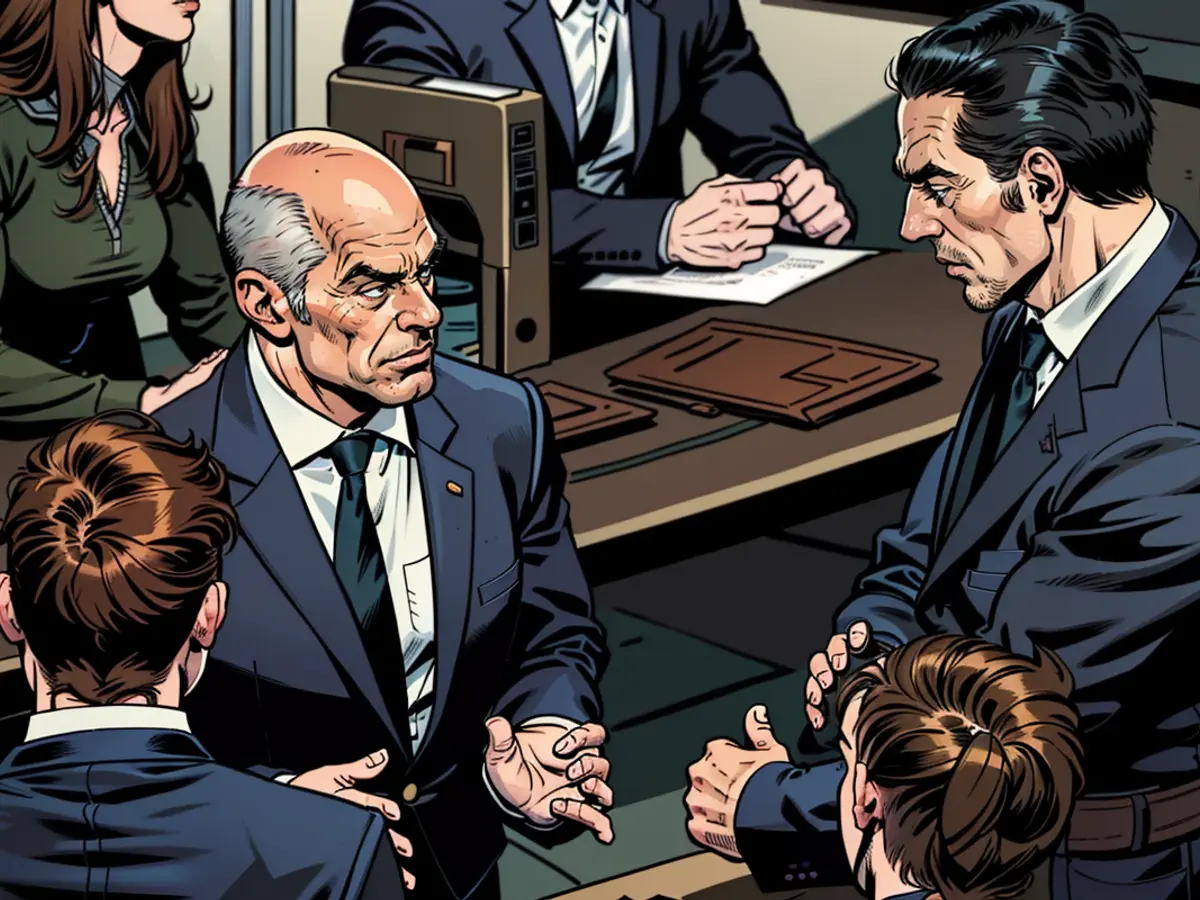Scholz admits crisis of confidence - European elections "were a turning point"
The politics face the task of addressing insecurity: "What we need to do is strengthen security - security within and without." The topic of security will be a "clear priority" in the budget proposal for the coming year that the coalition will present in July, Scholz announced in his government declaration for the upcoming EU and NATO summits.
The Chancellor warned against a "competition with populists and extremists who misuse the concerns of citizens for their own purposes." The result of the European election showed that "it is quite clear that confidence has disappeared from many in the face of all the crises," he said. Therefore, the government's task is: "Where there is a lack of confidence, we must re-establish it."
Savings in the social sector were rejected by Scholz, as it would be detrimental to social cohesion: "There should be no cuts in social justice, health, care or pensions." The government's goal must also be to make the economy grow faster.
Scholz's coalition will therefore bring a "growth turbo" along with the budget proposal, he said. There are "very collegial discussions in the federal government," the Chancellor added - and received laughter from the opposition.
Union faction leader Friedrich Merz (CDU) accused the Scholz-led government of a loss of effectiveness. "They no longer have the support of even a part, let alone the majority of the population for their government's goals," Merz said to the Chancellor. "Never in the history of our country has a government governed so against the clear interests of its own population as you." The Union chief held the coalition responsible for the strengthening of parties on the right and left.
CSU regional group leader Alexander Dobrindt accused the coalition of failing to learn from their poor showing in the European election. Dobrindt summarized: "They were inactive on migration, inactive on growth, inactive on wealth loss: They have no plan, they have no idea for the country, and some even question whether they still have a coalition." Dobrindt also criticized that the Chancellor did not acknowledge his share of responsibility for the trust deficit in his speech.
Green faction leader Britta Haßelmann accused Merz of "talking badly about this country." This is "fatal," Haßelmann criticized. The Union's demands for a stricter migration policy she described as "cheap populism."
AfD chairman Tino Chrupalla accused the coalition of not representing the interests of citizens. "Only when the citizens are picked up and feel recognized will they also accept the institutions and the actors behind them," he said. This, however, is not the case. "Exactly that is the reason, Mr. Scholz, why they received such a slap in the face at the European election."
Even Sahra Wagenknecht, an MP from the BSW, accused the coalition of ignoring the concerns of people. "Your understanding of democracy is really remarkable: The voters give you and the 'traffic light' a reprimand of unprecedented proportions, and you simply carry on as if nothing had happened," Wagenknecht said.
- Olaf Scholz, the Chancellor, emphasized the importance of security, stating it will be a "clear priority" in the coalition's budget proposal for the coming year.
- Scholz's coalition will present this proposal in July, as announced in his government declaration for the upcoming EU and NATO summits.
- In the same declaration, Scholz warned against a "competition with populists and extremists" who misuse citizens' concerns for their own purposes.
- The European election results showed "confidence has disappeared from many" due to all the crises, according to Scholz.
- Friedrich Merz, the Union faction leader, accused the Scholz-led government of losing effectiveness and not representing the clear interests of the population.
- Alexander Dobrindt, the CSU regional group leader, accused the coalition of failing to learn from their poor showing in the European election and not having a plan for the country.
- Britta Haßelmann, the Green faction leader, accused Merz of talking badly about the country, which she described as "fatal."
- Tino Chrupalla, the AfD chairman, accused the coalition of not representing the interests of citizens and suggested that they ignore voters' concerns, which he contributed to their poor performance in the European elections.







